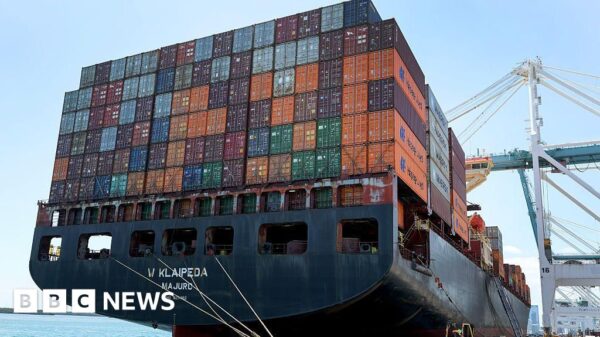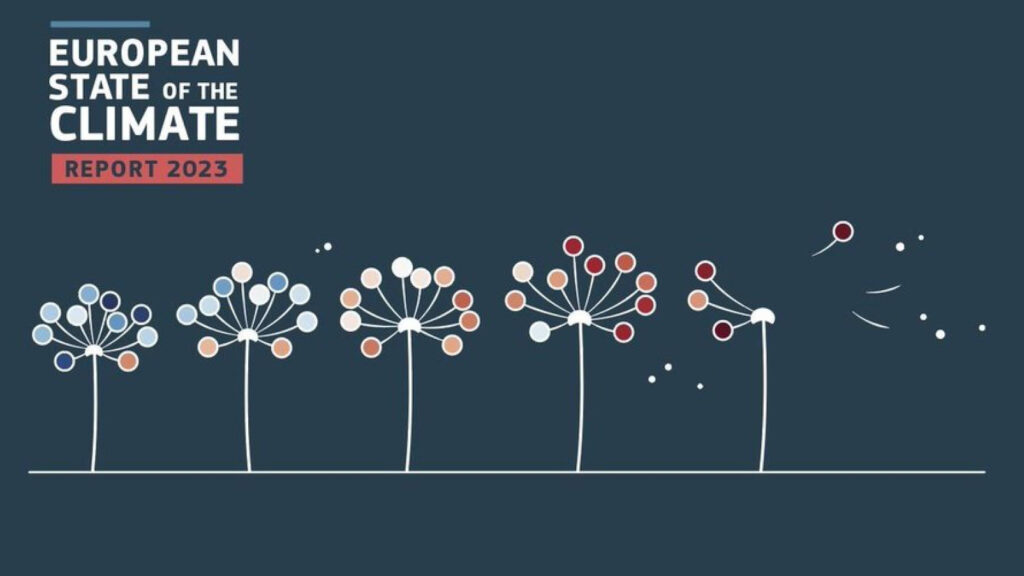The 2024 EU State of the Climate Report, published jointly by the Copernicus Climate Change Service and the UN World Meteorological Organisation, showcases the continued alarming trend of rising temperatures and climate change impact across Europe.
On Earth Day 2024, the EU Copernicus Climate Change Service published jointly with the UN World Meteorological Organisation (WMO) the annual European State of the Climate Report. Based on scientific data and analysis, the report showcases the continued alarming trend of rising temperatures and climate change impacts across Europe.
In 2023, Europe experienced its warmest year on record, impacting citizens with a surge in extreme heat stress days, and heatwaves. Those heightened temperatures amplified the occurrence and severity of extreme weather events like droughts, floods, and wildfires. Precipitation levels were 7% above average in 2023, raising flood risks in many areas of Europe.
The average sea surface temperature (SST) across Europe was the highest on record. In June 2023, the Atlantic Ocean west of Ireland and around the United Kingdom was impacted by a marine heatwave that was classified as ‘extreme’ and in some areas ‘beyond extreme’, with SSTs as much as 5°C above average.
The report also highlights the impacts of climate change across Europe and our societies in 2023, in particular the economic losses due to floods and the health impacts of heat stress.
Europe is the fastest warming continent, with temperatures rising at around twice the global average rate, as underlined by the European Climate Risk Assessment. The European State of the Climate Report stresses once again the need for Europe to become climate-neutral and climate resilient, and to speed up our clean energy transition and the uptake of renewables and energy efficiency measures.
The EU is committed to becoming climate-neutral by 2050 and has agreed on targets and legislation to reduce greenhouse gas emissions by at least 55% by 2030. The Commission published a Communication on April 2024 on how to effectively prepare the EU for climate risks and build greater climate resilience.
Copernicus, Europe’s eyes on Earth, is the Earth observation component of the European Union’s Space programme. Funded by the EU, Copernicus is a unique instrument that looks at our planet and its environment to benefit all European citizens.

































